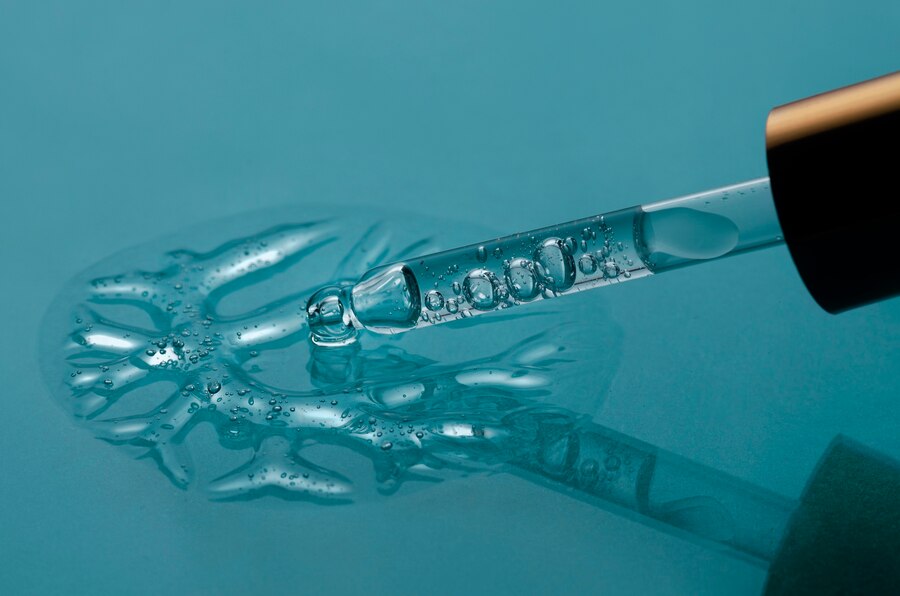Salicylic acid is a powerful ingredient that may transform your skin for the better. Salicylic acid may help you achieve a more precise, smoother, and more radiant complexion, whether you struggle with acne, blackheads, dullness, or signs of aging. Right?
Salicylic acid is a beta-hydroxy acid that helps exfoliate the skin and unclog pores. It may reduce acne, blackheads, whiteheads, and inflammation and improve skin texture and tone. Salicylic acid works by dissolving the proteins that hold skin cells together & clearing excess oil from the pores.
I will explain how salicylic acid works, how to use it safely and effectively, and what products to look for. Learn how salicylic acid may be the critical ingredient for revolutionary skincare solutions!
What is Salicylic Acid?
Salicylic acid is a natural compound that has many benefits for the skin. It is a type of beta hydroxy acid (BHA) that exfoliates the skin, unclogs pores, reduces inflammation, and fights acne. It may also help with other skin concerns such as aging, pigmentation, and texture. Many skincare products, such as cleansers, toners, serums, and lotions, contain salicylic acid. It may also treat warts, corns, dandruff, and psoriasis. Salicylic acid is related to aspirin and has anti-inflammatory and antibacterial properties.
Let's explore more about salicylic acid!

Benifits of Salicylic Acid
One of the primary benefits of salicylic acid is its ability to exfoliate the skin by penetrating oil-filled pores and dissolving the mix of sebum and dead skin cells that may lead to blackheads, whiteheads, and acne. This makes it a popular choice for individuals with oily or acne-prone skin. Additionally, salicylic acid has anti-inflammatory properties, helping to reduce redness and inflammation associated with acne breakouts.
Find our best Neutriherbs soothing salicylic acid(2%) face serum for acne here.
Moreover, salicylic acid promotes cell turnover, leading to a smoother complexion and improved skin texture. It may also treat conditions like psoriasis, warts, and seborrheic dermatitis due to its exfoliating effects.
It's important to note that while salicylic acid may benefit many, individuals with sensitive skin should use it cautiously, as it may irritate. Incorporating salicylic acid into a skincare routine, especially in the form of cleansers, toners, or spot treatments, should be done gradually to allow the skin to adjust. Consulting with a dermatologist is advisable to determine the most suitable concentration and application for individual skin needs. Here is the video on why salicylic acid is best for acne.
How Salicylic Acid Works
Salicylic acid is an exfoliant and anti-inflammatory agent, primarily targeting skin issues related to acne, blackheads, and uneven skin texture. Here's how it works:
- This allows it to penetrate oil-filled pores on the skin, dissolving the mixture of sebum (skin oil) and dead skin cells. By doing so, salicylic acid helps unclog pores, preventing and treating conditions like black and whiteheads.
- Salicylic acid exhibits anti-inflammatory properties, effectively reducing redness and inflammation associated with acne breakouts. This makes it beneficial for individuals with inflammatory acne.
- Salicylic acid promotes cell turnover, aiding in shedding dead skin cells. This process helps to renew and rejuvenate the skin, contributing to a smoother complexion and improved skin texture.
- Salicylic acid exfoliates and treats various skin conditions, including psoriasis, warts, seborrheic dermatitis, and acne.
It's important to note that salicylic acid should be used cautiously, especially by individuals with sensitive skin, as it may irritate. Starting with lower concentrations and gradually increasing may help the skin acclimate to its use. Always follow product instructions and consult a dermatologist for personalized advice based on your skin type and concerns.
Can I Use Salicylic Acid Every Day?
The frequency of using salicylic acid depends on your skin type, sensitivity, and the specific product's concentration. While some individuals may tolerate daily use, others may find it too harsh, leading to irritation, dryness, or peeling.
If you're new to salicylic acid, it's advisable to start with a lower concentration and use it a few times a week, gradually increasing frequency as your skin builds tolerance. A concentration of around 0.5% to 2% is typical in many over-the-counter products.
It's crucial to monitor how your skin responds and adjust usage accordingly. If you experience excessive dryness, redness, or irritation, reduce the frequency or switch to a lower concentration. Always follow the instructions on the product label, and consider incorporating a moisturizer to help counteract potential dryness.
Check our selection of Neutriherbs salicylic acid(0.2%) gel cleanser here.
Individuals with sensitive skin or those using other active ingredients in their skincare routine should be especially cautious. They may benefit from consulting a dermatologist to create a personalized and effective skincare regimen.

What Ingredient is Best for Salicylic Acid?
Salicylic acid itself is the active ingredient, and it is a beta-hydroxy acid (BHA) derived from willow bark or synthesized in a laboratory. Salicylic acid is widely used in skincare formulations to exfoliate the skin and address issues like acne, blackheads, and uneven skin texture. Learn the importance Of salicylic acid in a skincare routine here.
When choosing skincare products containing salicylic acid, looking for formulations with an appropriate concentration for your skin type and concerns is essential. Concentrations typically range from 0.5% to 2%. Additionally, considering the product's overall formulation is crucial, as other ingredients may influence its effectiveness and compatibility with your skin.
Some products may also combine salicylic acid with other beneficial ingredients, such as soothing agents or hydrating components, to enhance its overall efficacy and minimize potential irritation. It's advisable to perform a patch test before using products with salicylic acid, especially if you have sensitive skin, to ensure compatibility and avoid adverse reactions. If you have specific skin concerns or conditions, consulting with a dermatologist may help tailor salicylic acid to your needs.

What Percent of Salicylic Acid is Most Effective?
The effectiveness of salicylic acid may vary based on skin types and concerns. Salicylic acid concentrations typically range from 0.5% to 2% in over-the-counter skincare products. For many people, a concentration of around 1% to 2% is often effective in addressing acne and blackheads and improving overall skin texture.
However, the optimal percentage for effectiveness depends on factors such as skin sensitivity and the specific targeted concerns. Higher concentrations may provide more potent results but also increase the risk of irritation, particularly for individuals with sensitive skin.
It's essential to start with a lower concentration and gradually increase if needed, as this allows your skin to acclimate and minimizes the risk of adverse reactions. Additionally, considering the overall formulation of the product and its compatibility with your skin is crucial for achieving the best results.
If you have specific skin concerns or conditions, seeking advice from a dermatologist may help determine the most suitable concentration of salicylic acid for your needs. They may provide personalized recommendations based on your skin type, concerns, and potential sensitivities.

How to Use Salicylic Acid
Using salicylic acid effectively involves incorporating it into your skincare routine to address your specific needs and minimize the risk of irritation. Here's a general guide on how to use salicylic acid:
- Start with a low-concentration
- Use it Sparingly
- Apply on Clean, Dry Skin
- Follow Product Instructions
- Allow Time to Absorb
- Use Sunscreen
- Monitor for Irritation
Remember, individual responses to skincare products may vary, so paying attention to how your skin reacts and adjusting your routine accordingly is essential. If you have specific concerns or conditions, seeking professional advice from a dermatologist is advisable. Learn how to add salicylic acid serum to your skincare routine here.
Who Should Avoid Salicylic Acid?
While salicylic acid is generally safe for many individuals, there are specific groups who should exercise caution or avoid using it altogether:
- People with aspirin allergies
- Those with extremely sensitive or dry skin
- Individuals using certain medications
Before incorporating salicylic acid into your skincare routine, performing a patch test is always a good idea, especially if you have sensitive skin or fall into one of the above categories. If you have concerns or underlying health conditions, seeking advice from a dermatologist or healthcare professional is recommended.
Find our best Neutriherbs salicylic acid(0.5%) clay mask here.

Conclusion
Salicylic acid is a natural compound that offers multiple benefits for skincare. It is an effective exfoliant, particularly for individuals with acne-prone or oily skin, aiding in reducing blackheads and promoting smoother skin texture. Despite its advantages, caution is necessary. Individuals with aspirin allergies, extremely sensitive or dry skin, or those using certain medications, including blood thinners, should avoid salicylic acid.
Starting with lower concentrations, monitoring skin reactions, and consulting with a healthcare professional or dermatologist, especially during pregnancy or breastfeeding, ensures this skincare ingredient's safe and effective use.



